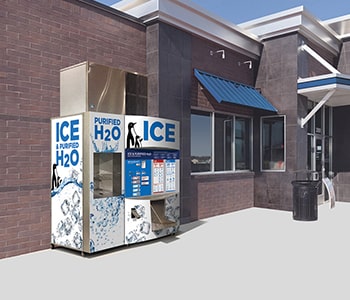Posted on: January 30, 2023 | Investing
The last two years have brought highly volatile markets. If you’ve invested in the stock market, you may have noticed a lot of fluctuations recently. These market shake-ups are hard to predict and can be frustrating. If you’re looking for alternative investments to avoid market volatility, there are a few options.
7 Investments to Avoid Market Volatility
1. Low-Maintenance Business
Your own business is one of the best investments to avoid market volatility. Though it requires a bit more time and effort on your part, it will also give you a lot more control. To maintain an investment in a business without disrupting your regular lifestyle, it’s important to look for a business that doesn’t require more time or energy than you can reliably put in. During volatile markets, it’s also important to look for a business that resists recessions.
Vending businesses are an ideal investment for those working full- or part-time already. These machines can make money throughout the day, and don’t require you to be there. Ice and water vending machines don’t even require restocking; you can manage this business remotely with just a few hours a week set aside for cleaning and maintenance.
Ice and water vending sales increased during a recession
See how »
2. Home Equity
With interest rates increasing to fight inflation, the hot housing market is likely to slow down. This may lead to a housing downturn in the next few years. However, the housing market tends to follow cyclical patterns, and has, historically, recovered stronger after each recession. Investing in your home can be a great alternative investment to avoid market volatility. And, since it involves physical assets, you’ll benefit from these renovations even if it takes some time for the market to recover and your ROI to be realized.
There are several ways you might in your home to gain a significant return on your investment including:
- Rental space: expanding or remodeling a spare room, basement space, loft area, or similar space can improve the value of your home and also provide the opportunity for rental income.
- Energy Improvements: additional insulation, high-efficiency hot water heaters and HVAC systems, new windows, and other energy-efficient improvements might not significantly add to your home value, but it can reduce your energy bills.
- Renovations: kitchen remodels, new flooring, new paint, and a few other strategic renovations can maximize ROI if you’re planning on selling when the market reaches a peak again.
3. Land
Real estate investments aren’t limited to homes. Land in general can be a good investment to avoid market volatility. Though there’s a lot of it, land is, ultimately, a finite resource. And, as populations continually increase worldwide, land will become more and more valuable.
As the real estate market cools off in the next few years, it may be a good time to invest in land. This might include land to build on later, or land for farming or recreation. Since it simply exists in nature, raw land requires a lot less maintenance and upkeep than other real estate. You can prepare your land to rent out for farming or camping with relatively little time or energy investment.
4. Solar Energy
The costs of energy from oil, natural gas, and coal are rising, including the monetary price as well as the environmental costs. These resources are also finite, and the costs won’t go down substantially ever again. This makes renewable energy like solar a great investment that’s unlikely to lose money.
Some investors put money into solar energy companies, but the easier way might be to outfit your own home with solar power. Though this investment might not technically make money, it can reduce your bills substantially, which can amount to the same thing. It’s important to consider this investment carefully beforehand, including how much sun your home gets, how much solar panels cost to install, and the payback period you can expect.
5. Gold and Precious Metals
Gold is generally viewed as highly resistant to market volatility. It’s a physical asset, unlike stocks and bonds, which are generally intangible, but it also has real value in items like jewelry and electronics. Though no assets are completely without volatility, gold and similar metals are generally more stable.
The value of gold, silver, and other precious metals tends to rise in times of turbulent economic activity. This means, if you want to “buy low, sell high,” the time to buy may have passed, but it will come around again before too long.
6. Artwork, Antiques, Collectibles
Other types of physical investments like artwork, antiques and collectibles are also subject to some volatility, but not the same volatility as the stock market. These types of assets require some knowledge to make a significant return, but can be rewarding, both personally and financially. If you have an interest in particular artwork, antiques or collectibles, this can be an engaging alternative investment to avoid market volatility.
7. Certificates of Deposit
Certificates of deposit, or CDs, are similar to savings accounts, but they offer stronger returns. A CD requires you to invest a set amount for a set amount of time, and provides you with interest on the amount after the set time period expires. These are some of the safest investments there are, though ROI tends to be modest.
When interest rates are low, CDs don’t provide much of a return and generally aren’t worth it, especially when factoring in inflation. But, higher interest rates mean you’ll earn more. Higher interest rates also lower inflation, so waiting for high interest rates and low inflation is the perfect time to invest in a CD.
As with any investment, always research your options carefully before making a decision. If you’re looking for an investment that gives you control, not the market, then contact us. We can tell you more about how to set up your ice and water vending business with low maintenance and upkeep.
Invest in Your Retirement
Earn residual income from an investment in an ice & water vending machine.
DOWNLOAD THE FREE GUIDE RIGHT NOW.
Get the Guide »


